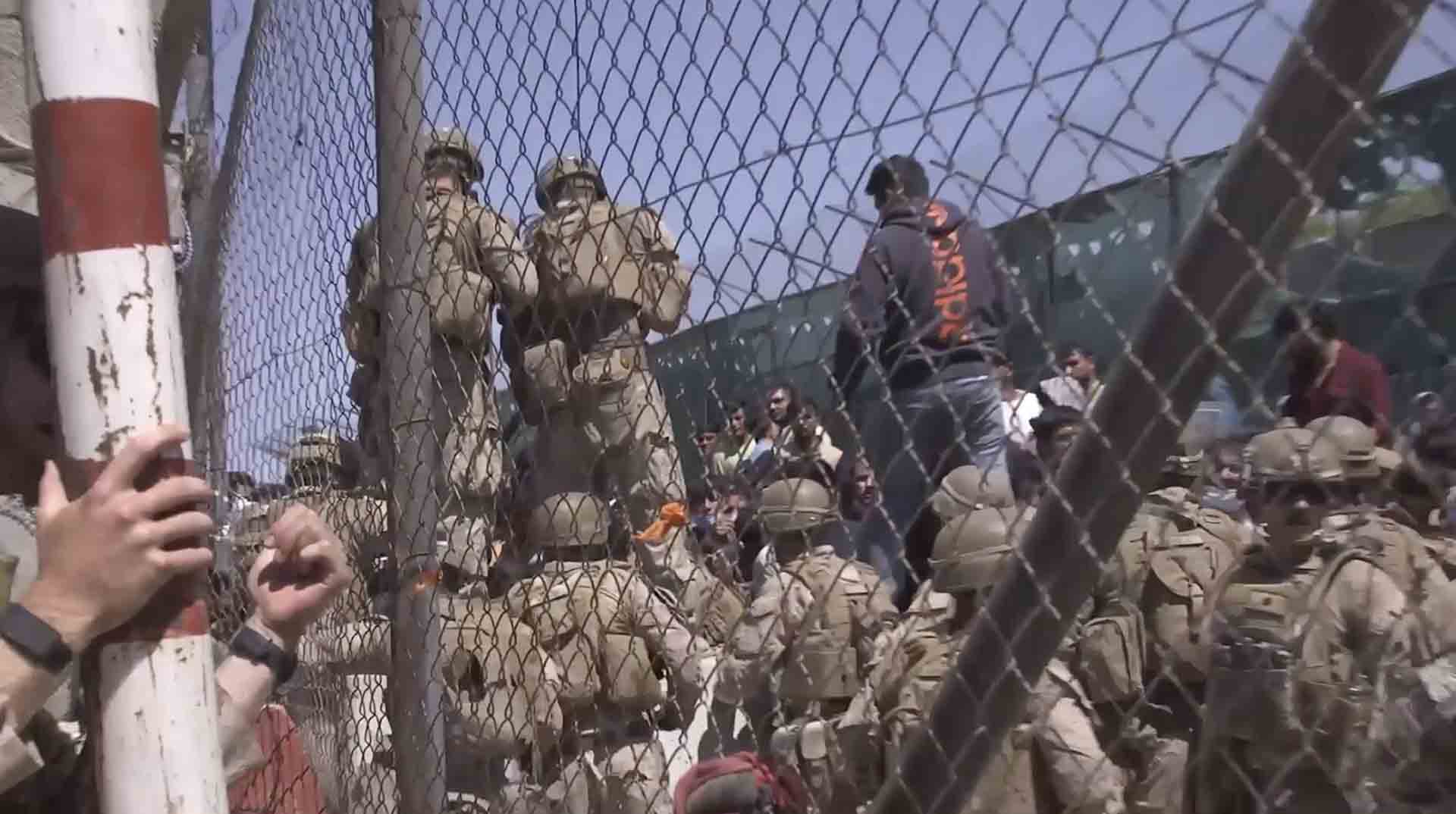

The U.S. military completed its additional review into the 2021 Abbey Gate bombing during the Afghanistan withdrawal and is now sharing the findings of it with the families of service members who died during the attack.
U.S. Central Command announced on Saturday, April 6 that it was informing Gold Star families of those killed in the attack at Kabul’s airport on Aug. 26, 2021. As thousands of Afghans rushed to Hamid Karzai International Airport to flee the Taliban and get flights out of the country, members of ISIS-Khorasan Province or ISIS-K, the terror groups affiliate in Afghanistan, detonated suicide bombs. The attack was at Abbey Gate, the main entry into HKIA. Soon after ISIS-K members opened fire on American service members, civilians and Taliban fighters outside of the airport.
The attack killed 13 American service members — 11 Marines, an Army special operations soldier and a Navy corpsman — and wounded 18 more. Approximately 170 Afghan civilians were killed in the explosion as well. The initial investigation found that the attack was not preventable.
This new review began in June 2023 and CENTCOM officially announced it in September. CENTCOM previously said the effort was not to formally reopen the investigation into the Abbey Gate bombing, but in part to talk to people who previously were not interviewed, to see if there was any additional information that could be learned. U.S. Army Central, which conducted the 2021 investigation into the Kabul attack, oversaw the new work. Members from the Marine Corps and Army carried out more than 50 interviews as part of the effort. That included a dozen service members who were previously not consulted due to being treated for injuries.
Subscribe to Task & Purpose Today. Get the latest military news and culture in your inbox daily.
The new review was focused on three main points of investigation. Witnesses were interviewed to see if service members at the airport identified the suicide bomber before the attack, and if so did they have a chance to engage before the detonation? Additionally the review sought to determine through interviews and statements if ISIS-K carried out a test run on the attack five days prior to the Abbey Gate bombing?
According to CENTCOM, top Department of Defense officials also received the review team’s conclusions and recommendations for going forward.
The conclusion of the new review and the sharing of details with the Gold Star families comes as the military leaders were questioned by Congress about both the Abbey Gate attack and the fall of the U.S.-backed government in Afghanistan in 2021. Retired generals Mark Milley and Kenneth F. McKenzie Jr. spoke about the policy decisions surrounding the withdrawal, with Milley saying that the delay by the State Department in ordering a Noncombatant Evacuation Operation, which contributed to the chaos in August. The State Department’s own Afghanistan After Action Review report, released last year, said that there was not enough planning done by both the Trump and Biden administrations on possible worst-case scenarios to prepare for what eventually took place.
American forces later carried out an airstrike in Kabul targeting the bomb maker behind the explosion, but killed civilians instead. The Taliban later killed the ISIS-K commander behind the Abbey Gate attack.
“Our focus at this time continues to be on fulfilling our solemn obligations to the Abbey Gate Gold Star Families,” CENTCOM said in its statement on briefing the families. “We ask that you continue to respect their privacy.”
The latest on Task & Purpose
- Air Force special operators must take class before getting shaving waivers
- Camp Pendleton Marines encouraged to fix their own barracks rooms
- 101st Airborne soldiers are first to receive new Next Gen Squad Weapon
- Air Force fires commander of Holloman maintenance group
- Army investigating Nazi imagery on Special Forces patch posted online
